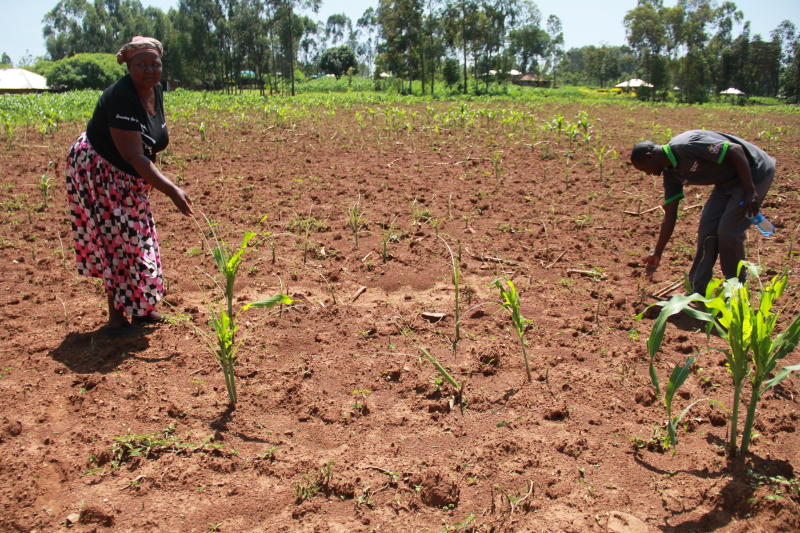Dorine Aoko and Rangwe sub-county extension officer Andrew Nyasane in Aoko's maize farm which has been destroyed by armyworms at Gul Kagembe in Rangwe on April 6, 2022. [James Omoro, Standard]
×
The Standard e-Paper
Stay Informed, Even Offline







